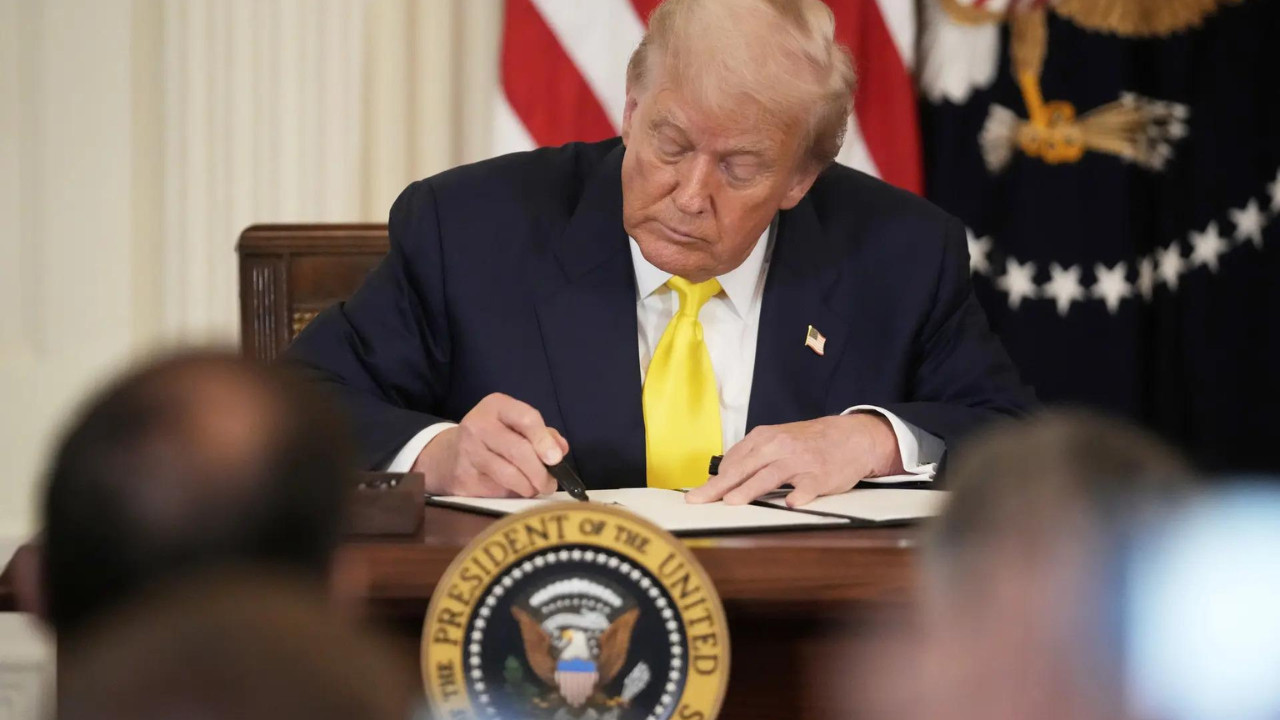President Trump’s executive order aims to broaden 401(k) investment options, potentially including private equity and cryptocurrency. This shift directs federal agencies to revise regulations under ERISA, allowing employers to offer alternative assets in retirement plans. While proponents tout higher returns, concerns remain regarding volatility, fees, and liquidity, prompting industry groups to urge caution and careful implementation.
Beyond Stocks and Bonds: Will Private Equity and Crypto Redefine Your Retirement?
For decades, the recipe for a secure retirement has been pretty straightforward: diversify your portfolio, invest in stocks and bonds, and let time do its magic. But what if there was a way to potentially juice those returns, even if it meant venturing outside the traditional comfort zone? A recent executive order is shaking up the retirement landscape, opening the door for private equity investments, and potentially even cryptocurrency exposure, within 401(k) plans. Is this a game-changer, or a gamble with your golden years?
A New Frontier for Retirement Savings
The driving force behind this shift is the desire for higher returns in a world where traditional investment options often seem to offer less bang for your buck. Proponents of the change argue that access to alternative investments like private equity, which typically outperform public markets, can significantly boost retirement savings, particularly for younger generations with longer investment horizons. Imagine the potential for growth if your retirement fund had a slice of the next tech unicorn before it went public. The allure is undeniable.

However, this move isn’t without its critics. The inherent complexity and opacity of private equity investments raise concerns about transparency and the ability of average investors to adequately assess the risks involved. Unlike publicly traded stocks, private equity isn’t subject to the same level of regulatory scrutiny. This lack of readily available information can make it difficult to truly understand the underlying assets and the fees associated with them.
The Crypto Wildcard: A Risky Proposition?
While the executive order doesn’t explicitly mention cryptocurrencies, its broader scope opens the door for their inclusion in retirement plans. And that’s where things get really interesting – and potentially volatile. Cryptocurrency’s notorious price swings have made many financial advisors wary, and for good reason. While some see digital assets as the future of finance and a high-growth opportunity, others view them as speculative investments with a high risk of loss.
Imagine putting a significant portion of your retirement savings into Bitcoin, only to see its value plummet by 50% in a matter of weeks. The emotional toll alone could be devastating, let alone the impact on your long-term financial security. For this reason, any foray into crypto within a 401(k) would require extreme caution and a deep understanding of the technology and the market dynamics.
Navigating the New Retirement Landscape
So, what does this all mean for you and your retirement savings? The key takeaway is that this is not a one-size-fits-all situation. Before considering investing in private equity or other alternative assets through your 401(k), it’s crucial to carefully weigh the potential risks and rewards, and to consider your own risk tolerance and investment goals.
Here are a few key questions to ask yourself:
* Do I understand the investment? If you can’t explain how a private equity fund or a cryptocurrency works, you probably shouldn’t be investing in it.
* What are the fees? Alternative investments often come with higher fees than traditional investments, which can eat into your returns over time.
* What is my risk tolerance? Are you comfortable with the possibility of losing a significant portion of your investment?
* Am I properly diversified elsewhere? Concentrating your retirement savings in one high-risk area can be devastating.
Diversification remains a cornerstone of sound financial planning. Remember to explore various options to balance risk and return, for example, consider high yield savings accounts.
Proceed with Caution, But Don’t Dismiss the Possibilities
The introduction of private equity and other alternative investments into 401(k) plans presents both opportunities and challenges. While the potential for higher returns is enticing, the increased risk and complexity demand careful consideration. Ultimately, the decision of whether or not to venture beyond traditional investments is a personal one, and it should be made in consultation with a qualified financial advisor who can help you navigate this evolving landscape and ensure that your retirement savings align with your individual needs and goals. The future of retirement investing is changing, and it’s up to each of us to stay informed and make smart choices that will help us achieve a secure and comfortable retirement.







